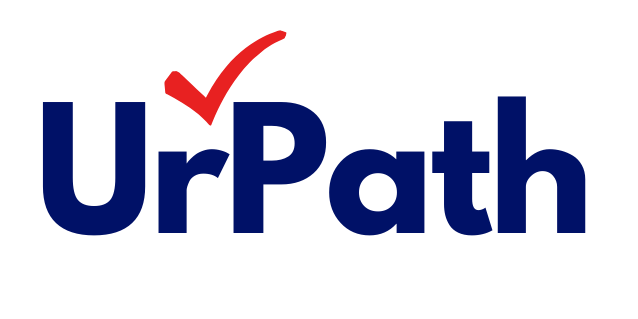The Power of International Student Recruitment in Higher Education
Book Your Free Initial Consultation Today
As the global landscape of higher education evolves, the recruitment of international students has become a critical focus for colleges and universities. International student recruitment offers a valuable opportunity for institutions to diversify their campuses, increase enrollment, and boost revenue. However, effectively reaching prospective students from across the globe requires a well-planned strategy, often involving partnerships with student recruitment agencies.
What is International Student Recruitment?
International student recruitment refers to the process of attracting students from countries outside of your institution’s home country. This recruitment strategy involves a mix of marketing, outreach, and relationship-building efforts designed to showcase the benefits of studying at your institution to international audiences.
The scope of international recruitment often includes:
- Targeted outreach to regions with high student mobility, such as Asia, the Middle East, and Latin America.
- Partnerships with recruitment agencies that are experienced in connecting international students with higher education institutions abroad.
- Culturally tailored marketing efforts that highlight the unique benefits your institution offers, including academic programs, campus life, and post-graduation opportunities.
Why is International Recruitment Important?
- Diversity and Global Perspective
International students bring diverse perspectives, experiences, and cultures to a university campus. This diversity enriches classroom discussions, fosters cross-cultural understanding, and prepares all students for a globalized workforce. Institutions that prioritize international recruitment create a more dynamic learning environment, benefiting both domestic and international students. - Revenue Growth
The financial benefits of international recruitment cannot be overstated. In the 2022/23 academic year, the U.S. hosted over 1.05 million international students, contributing billions of dollars to the economy. International students often pay higher tuition fees, providing an important source of revenue for universities. This revenue can support the institution’s financial health and fund scholarships, research, or campus improvements (IIE Open Doors) - Enhancing Institutional Reputation
A robust international student population can enhance an institution’s global reputation. Universities known for attracting a diverse student body are often perceived as more prestigious and forward-thinking. By establishing a strong presence in international markets, institutions can strengthen their brand and attract top talent from around the world. - Building Global Partnerships
International recruitment often goes hand in hand with establishing relationships with foreign governments, educational institutions, and organizations. These partnerships can lead to collaborative research opportunities, exchange programs, and international alliances that benefit the institution long-term.
The Competitive Edge: Winning the Game of International Recruitment
The competition to recruit international students has intensified, with universities worldwide vying for the attention of top global talent. According to the Open Doors 2023 Report, the number of new international student enrollments in the U.S. grew by 12% in 2022/23, marking the fastest growth in over 40 years (IIE Open Doors). STEM programs were particularly popular, with over 55% of international students enrolling in these fields. To win in this competitive landscape, institutions must not only offer academic excellence but also engage in targeted, culturally sensitive recruitment strategies. Partnering with student recruitment agencies that have established networks and local expertise can give your institution the edge needed to stand out in global markets.
Why Student Recruitment Agencies Are Critical
Student recruitment agencies act as vital intermediaries between higher education institutions and prospective international students. These agencies possess deep local knowledge of education systems, cultural nuances, and student expectations in various regions. By leveraging their expertise, institutions can overcome common barriers in international recruitment and effectively connect with students who are the right fit for their programs.
- Localized Expertise and Market Insight
Recruitment agencies understand the regional dynamics and cultural factors that drive student decisions. They can guide institutions in tailoring their recruitment strategies to specific markets, ensuring that messaging and outreach resonate with local audiences. For example, agencies know that students in different regions, like Asia or Latin America, have varying motivations and expectations when choosing a university abroad. - Established Networks and Relationships
Agencies have strong connections with local high schools, educational consultants, and families. These networks are vital for building awareness and trust among prospective students. Institutions partnering with recruitment agencies can access these established channels, gaining faster and more effective entry into international markets. - Guidance Through Complex Admissions Processes
Applying to foreign universities can be complex for international students. Recruitment agencies assist in navigating these processes, ensuring that applications meet the required standards and reducing the administrative burden on admissions offices. Agencies help students compile accurate documentation, complete visa processes, and meet other legal requirements, making the admissions process smoother for institutions and applicants alike. - Boosting Conversion Rates
A common challenge in international recruitment is converting inquiries into enrollments. Recruitment agencies provide personalized support and consistent communication to students throughout the decision-making process, helping to keep them engaged and increasing the likelihood of enrollment. This targeted approach boosts conversion rates and ensures a higher return on investment for institutions. - Cost-Effective and Scalable Solutions
Building an internal international recruitment team can be resource-intensive. Working with agencies allows institutions to scale their recruitment efforts cost-effectively, as agencies handle much of the groundwork, such as outreach, screening, and student consultations. This means institutions can achieve results without needing to establish a physical presence in multiple countries.
Why International Recruitment is the Future of Higher Education
With increasing globalization and demand for international mobility, the international student recruitment market is poised for continued growth. Institutions that invest in international recruitment will be better positioned to thrive in a competitive higher education landscape.
- Changing Demographics
Declining birth rates in many Western countries have led to shrinking domestic student populations. International students can help fill this gap, allowing institutions to maintain or grow their enrollment numbers. - Increased Mobility
More students than ever are seeking educational opportunities abroad. International recruitment provides institutions with access to a highly motivated, mobile student population that is eager to study at globally recognized universities. - Technological Advances
Advances in digital marketing, virtual fairs, and online admissions tools have made it easier for institutions to connect with international students. Institutions that adopt these technologies and use them to support international recruitment efforts will have a competitive edge in reaching a broader audience.
How We Can Help
At UrPath, we specialize in connecting higher education institutions with student recruitment agencies around the world. Our global
network ensures that your institution is introduced to reputable agencies in key international markets, helping you expand your reach and
attract top international talent. Whether you're looking to increase your diversity, grow enrollment, or enhance your institution’s global
presence, we have the expertise to make it happen. Contact us today to learn more about how we can support your international
recruitment efforts.
Got Any Questions?




